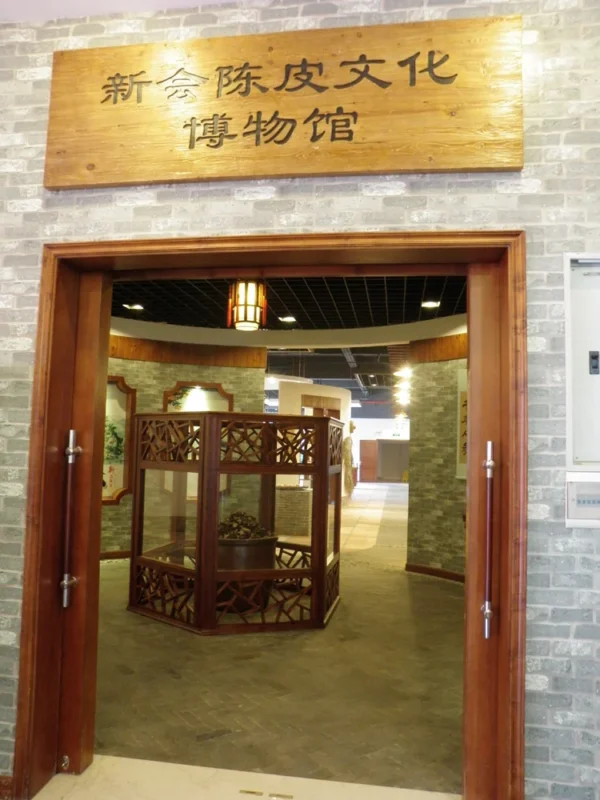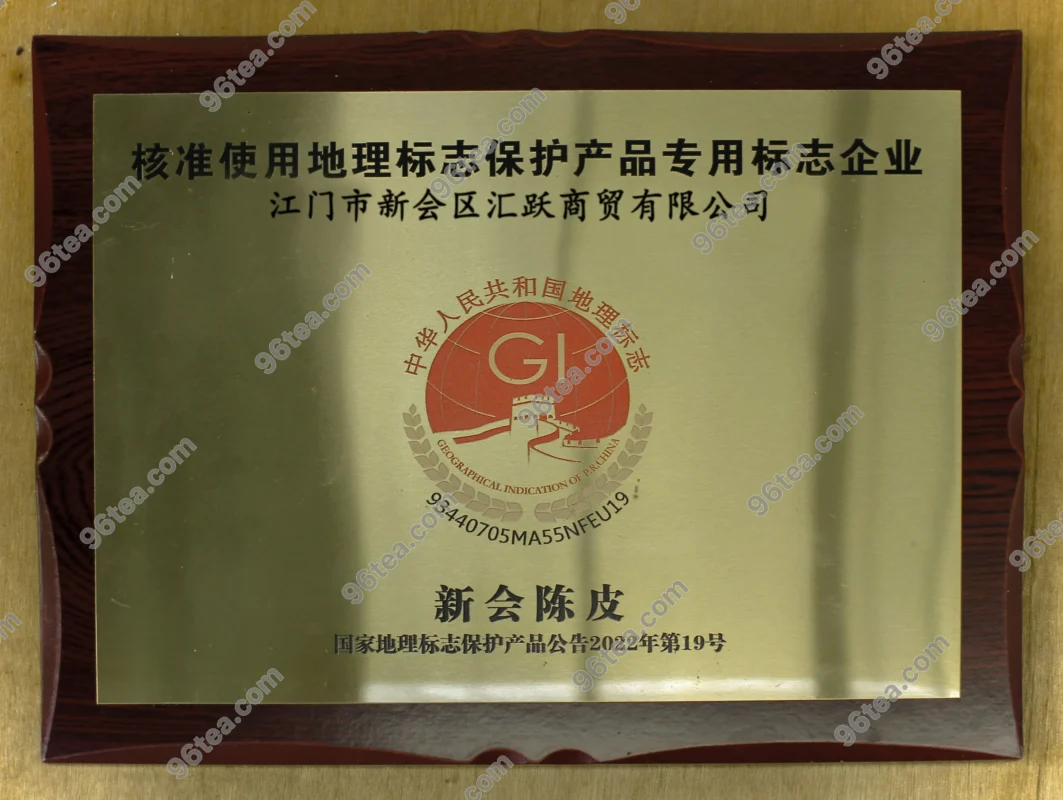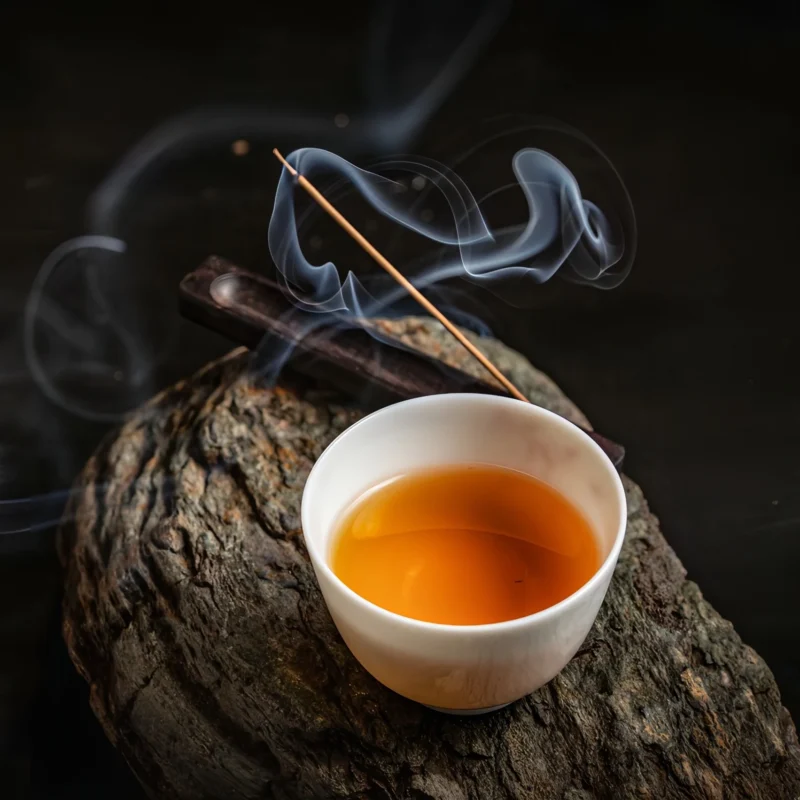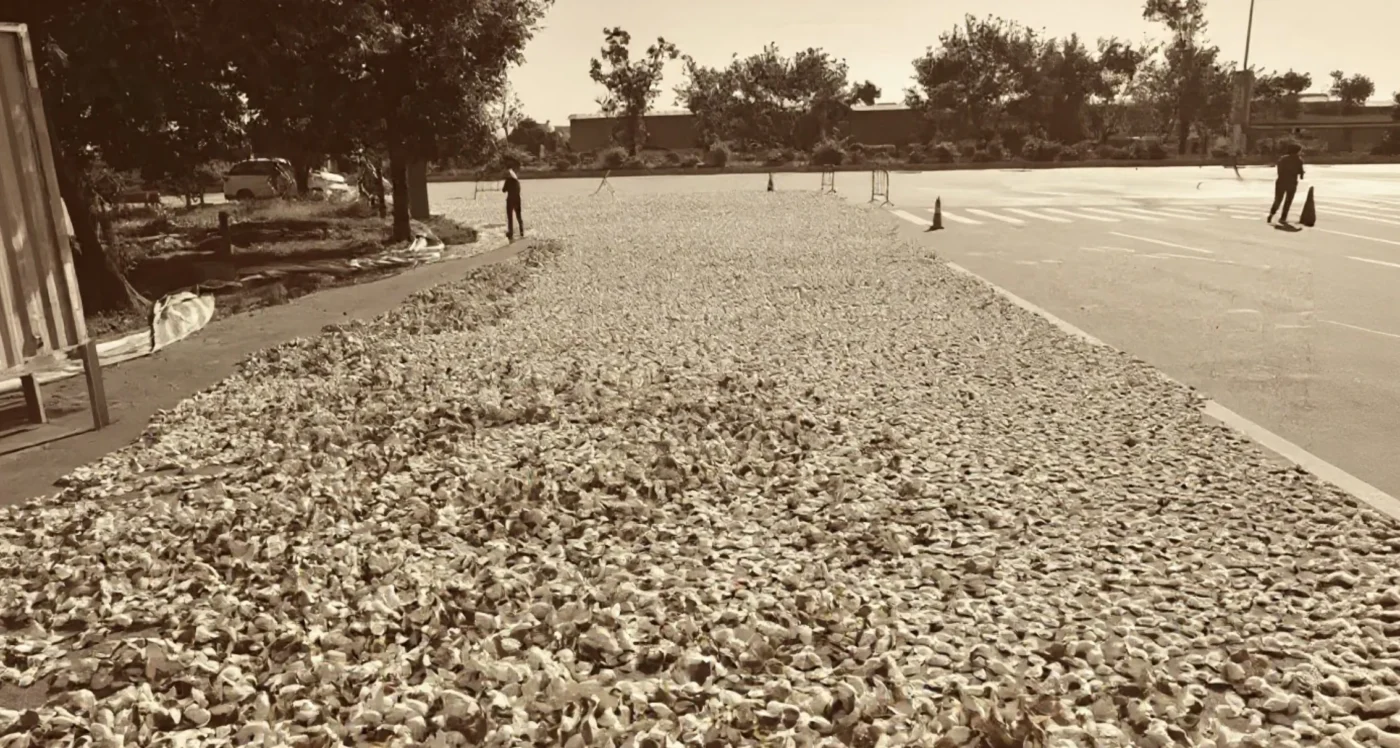96tea’s Xinhui Chenpi Journey
In the spring of 1996, the first golden rays of dawn filtered through the emerald leaves of a mandarin grove in Chaping Village, Xinhui. They settled softly on the weathered palm of Old Huang—a lifelong citrus grower who had spent half his life tending to these trees. Kneeling beside his sun-drying field, he gently turned over a basket of freshly picked green mandarins with his calloused fingertips, each movement deliberate and practiced. Behind him stood three generations of sun-drying sheds, their wooden beams weathered by time but still sturdy, a silent testament to his family’s legacy.
This unassuming corner of the Pearl River Delta’s water towns, hidden among rolling hills and winding rivers, would one day become the “living calling card” of 96tea’s Xinhui Chenpi (aged tangerine peel) as it journeyed to global renown. And the very Chenpi drying under that morning sun? It would grow into more than just a spice—it would become a cultural bridge, weaving together tradition and modernity, China and the world.
2009-2013: From Local Specialty to Cultural Icon
The year 2009 marked a “cultural awakening” for Xinhui. In March, Xinhui Chenpi (aged tangerine peel) was inscribed on Guangdong Province’s Intangible Cultural Heritage List, honoring its role as a living testament to regional tradition. By June, it earned the title “Most Representative Local Specialty of Guangdong” from the Guangdong Food Culture Research Association. That November, it topped Jiangmen City’s “Top 10 Agricultural (Local) Products” list—an honor reserved for products that define a region’s culinary and cultural identity.
“These honors aren’t for the brand—they’re for Xinhui Chenpi itself,” reflects the team at 96tea. During these years, they interviewed elderly farmers to document ancient techniques like “triple-steaming and triple-drying,” and built a “Chenpi Cultural Museum” beside their sun-drying fields. Filled with old photos, weathered sun rakes, and yellowed account books, the museum tells the story of three generations of passion for preserving Chenpi. Visitors don’t just buy Chenpi here—they touch a “living history,” where the peel becomes paper and time becomes ink.
In 2011, Xinhui was crowned “China’s Hometown of Chenpi” and “China’s Hometown of Authentic Chenpi Medicinal Materials” by the China Food Culture Research Association. 96tea’s sun-drying field became a model “intangible cultural heritage workshop demonstration site.” By 2013, when the “China Herbal Culture Demonstration Base” plaque was unveiled, Huang Xingrong (now founder of 96tea) had taken the baton from his father: “Chenpi shouldn’t be confined to the label of ‘herbal medicine.’ It can be tea, a ritual, a cultural experience—and 96tea will make that vision real.”

2019-2022: From Chinese Icon to Global Flavor
November 2019 – July 2020: Xinhui Chenpi’s Dual Milestones Toward Global Recognition
In November 2019, Xinhui Chenpi (aged tangerine peel) made its debut on a national stage: it was officially included in China’s Agricultural Brand Catalog, a prestigious list curated by the Ministry of Agriculture and Rural Affairs to honor top-tier, nationally trusted agricultural products. This milestone wasn’t just an honor—it was a testament to decades of craftsmanship and a vote of confidence in Xinhui’s unique citrus heritage.
Just eight months later, in July 2020, Xinhui Chenpi achieved another historic milestone: it was inscribed on the Second Batch of Protected Geographical Indications (GI) under the China-EU Agreement. For 96tea, this meant more than legal recognition—it meant global protection.

From 1996 to 2024, the story of 96tea has been etched into every oil gland of its Xinhui Chenpi (aged tangerine peel), carved into the palm lines of generations of artisans, and hidden in the memories of everyone who has savored its warmth. As Huang xinrong (96tea’s CEO) often says, “We’re not just selling Chenpi—we’re sharing a way of life: slow down, let a peel age naturally; stay quiet, and savor the depth of time.”



